Silicon Carbide
Silicon Carbide (SiC)
Silicon Carbide – Raw & Sintered/Machined
In solid form, SiC is a non-oxide ceramic. Its exceptional hardness makes it ideal for a range of specialized uses, including high-impact applications such as body armor and certain types of sandpaper. Thanks to its higher thermal capabilities compared to traditional silicon, it’s widely used for machinery, parts, and devices that demand enhanced heat resistance.
Silicon Carbide also has excellent heat conduction properties — 3 times better than traditional silicon, making it extremely useful for customized ceramic materials created for industries like aviation, automotive transportation, solar, military equipment, aerospace, and many others.
Our own use of SiC has allowed us to create durable products in many industries. From ceramics designed and optimized for dental use to machining devices that require intense heat resistance. SiC is so exceptionally durable it is suitable for use in nuclear industry components and devices. With resistance to heat, radiation, and corrosion, it’s ideal for nuclear cladding, (the thin tubing that typically surrounds fuel rods).
Silicon Carbide’s excellent heat transfer capability allows it to efficiently conduct and dissipate heat, protecting other machine components.
Silicon Carbide components can withstand temperatures of ~1650°C.
In electronics, Silicon Carbide is particularly useful due to a wide-bandgap. This allows transistors and semiconductors made from Silicon Carbide to operate at high frequencies, voltages, and temperatures without breaking down. Silicon Carbide devices can, therefore, handle voltage many times higher than devices made of alternative materials.
SiC Manufacturing Methods
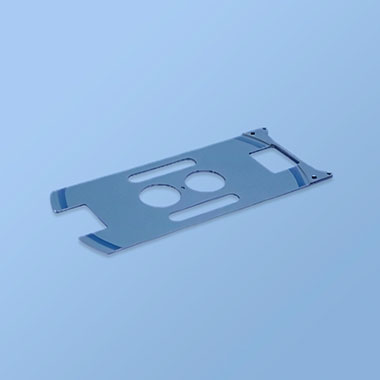
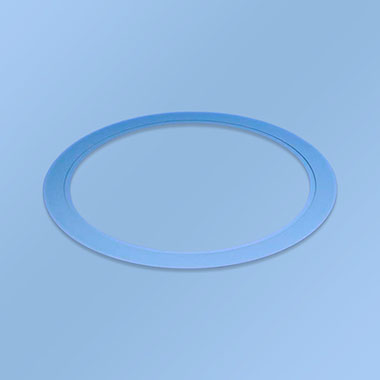
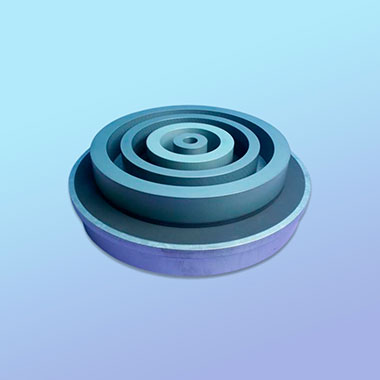
Silicon Carbide, known for its diverse applications, can be produced through various manufacturing methods.
- Sintering: A process in which moisture is removed, and heat is applied to compact and solidify the material into a dense structure.
- Hot Pressing: A high-temperature heating process used to form the powder compact into a dense and durable structure.
- Reaction Bonding: This method employs advanced technology to bond materials, processing the ceramic for enhanced strength and performance.
- CVD-SiC (Chemical Vapor Deposition): Silicon Carbide is formed as a solid material through a controlled reaction in the gaseous phase.
- Graphite Conversion: Purified graphite reacts with silicon atoms, transforming into high-quality silicon carbide.
The different methods from which Silicon Carbide is derived lead to a durable and heat-resistant material whose benefits extend to a wide range of applications, utilities, and industries.
Other beneficial properties of Silicon Carbide include both good thermal & electrical conductivity and low expansion coefficient, which makes it ideal for making components for use in demanding projects.
Industry-Specific Benefits of SiC
When it comes to industrial work related to chemistry, aerospace, or even thermodynamics SiC boasts an impressive array of benefits, demonstrating its versatility and strength. Due to its ability to dissipate heat, it can withstand extreme temperatures and survive extremely tough environments.
At Applied Ceramics, our team of designers, technicians, and customer care staff all work in tandem to ensure you get the perfect components for your desired application, at the right cost. We have years of experience with silicon carbide products and materials.
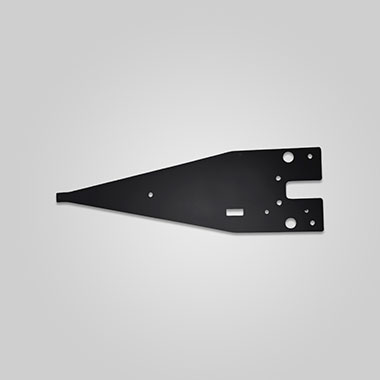
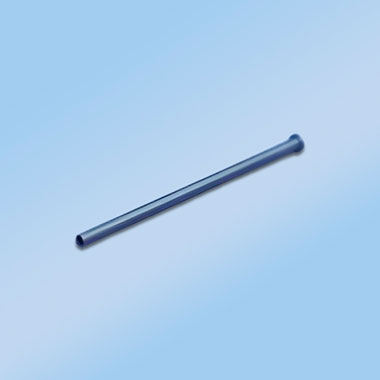
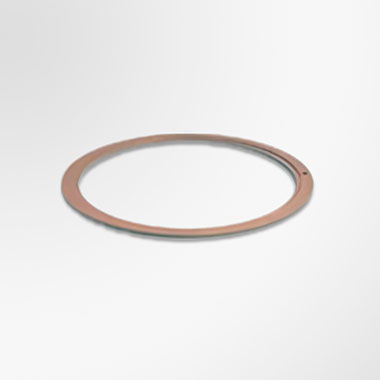
We can make the exact part per your design and specifications.
Contact us today to speak to one of our ceramic experts who will guide you on how we can work together to design and deliver the Silicon Carbide parts you need, to your desired specifications.
APPLICATIONS
- Ceramic Components
- Semiconductors
- Wafer Processing Equipment
- Float Glass
- Metal Heat Treatment
- Aviation & Aerospace Components
- EVs & Charging Infrastructure
- Intelligent energy infrastructure including solar, wind, and energy storage systems
- Automotive Components
- Bearings
- Pump Components
- Extrusion Dies
MAIN PROPERTIES
- Low density
- High hardness
- Low expansion coefficient
- Good thermal & electrical conductivity
- High strength
- Good high-temperature strength
- Good oxidation resistance
- Excellent thermal shock resistance
- Very good wear resistance
- Excellent chemical resistance
-
Silicon Carbide
Properties Units Silicon Carbide MECHANICAL Density g/cm3 3.08-3.20 Color – black Water Absorption % 0 Flexural Strength MPa@room temp.(R.T.) 462 Compressive Strength MPa@R.T. 1725-2500 Hardness GPa 23.5-24.5 THERMAL Coefficient of Linear Thermal Expansion 1E-6/°C
(»25°C to Ј1000°C)4.0-4.5 Thermal Conductivity W/m°K@R.T. 75-155 Specific Heat cal/g°C@R.T. 0.15 Thermal Shock Resistance D T(°C) 350-500 Maximum Use Temperature °C 1400 ELECTRICAL Volume Resistivity Ohm. cm@R.T. 108 Dielectric Constant 1MHz@R.T. –


